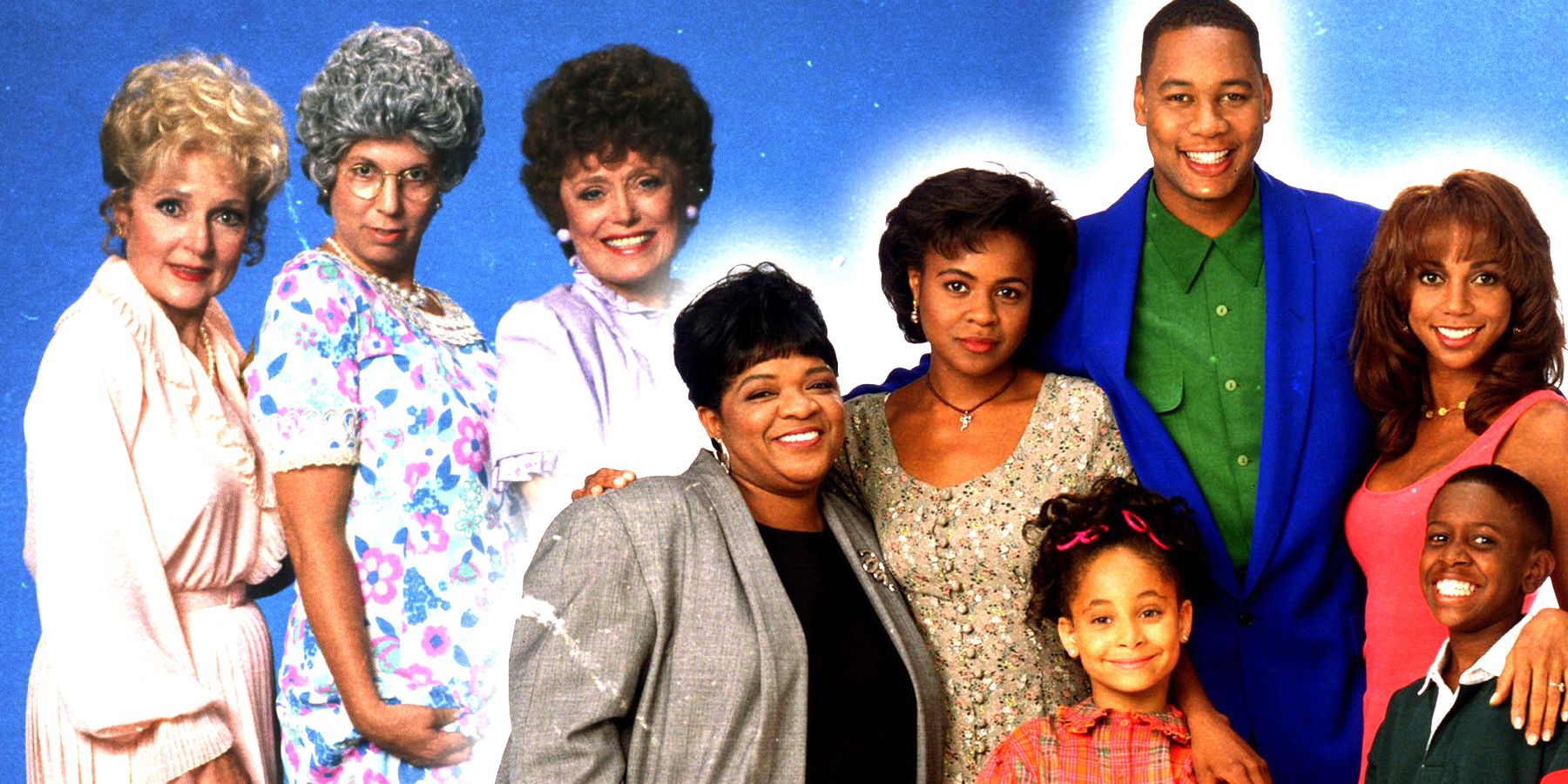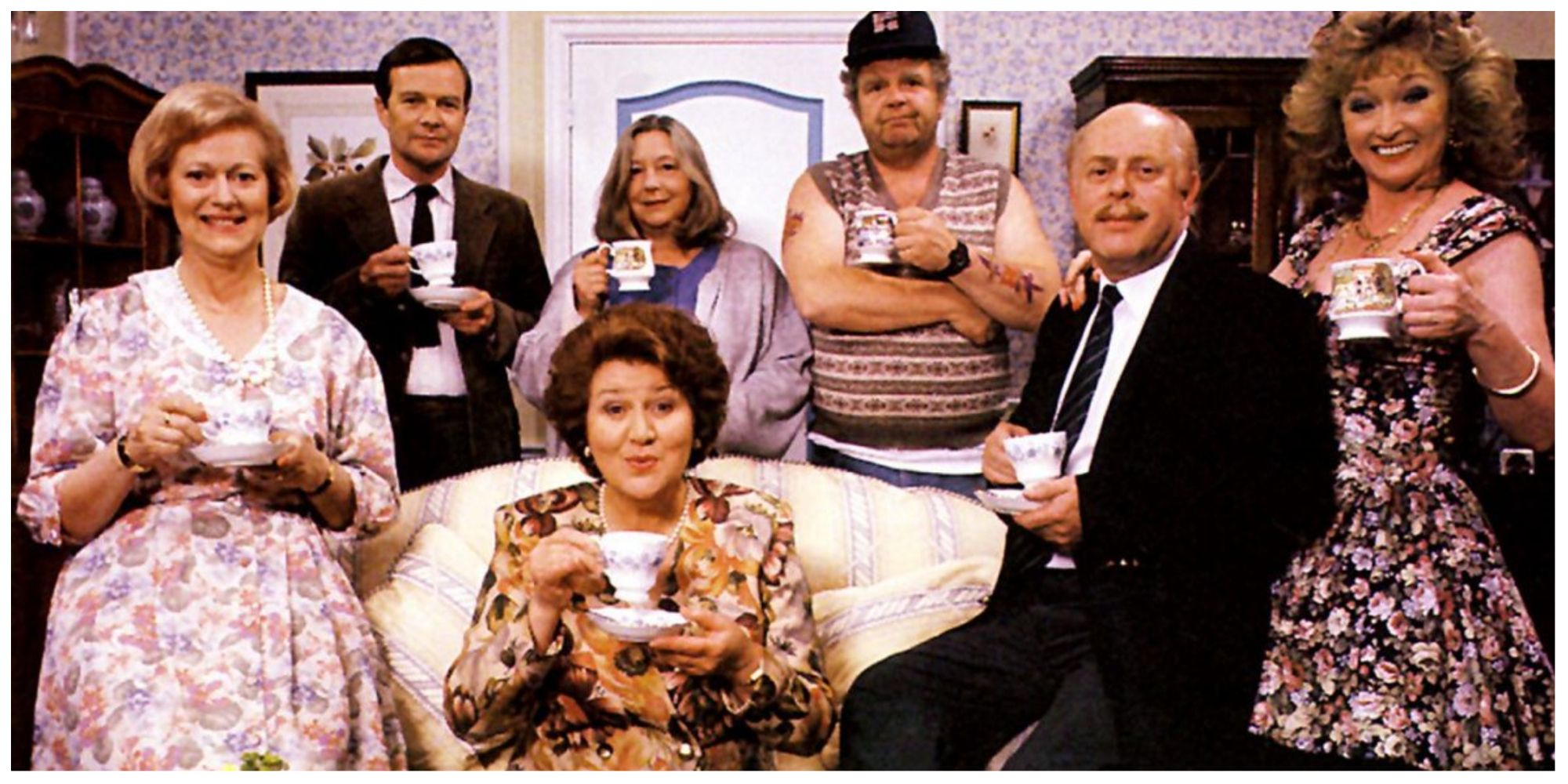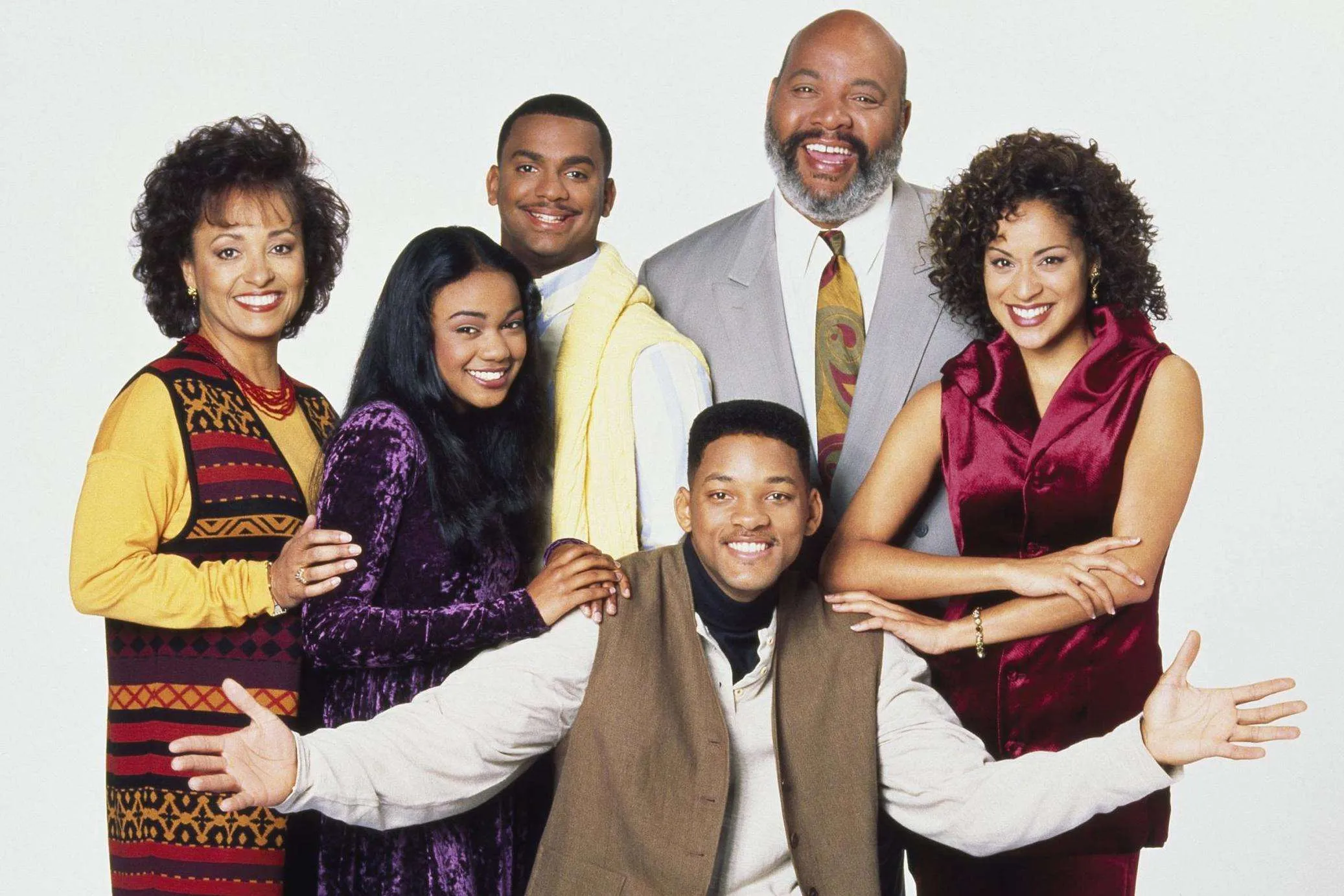The 70s Sitcom Revolution: Laughter, Thought, And Enduring Legacies
The 1970s were a pivotal decade for television, particularly for the genre of situation comedy. This era didn't just offer laughs; it redefined what a sitcom could be, pushing boundaries and reflecting the complex social landscape of the time. From groundbreaking narratives to memorable characters, the sitcoms of the 70s left an indelible mark on popular culture, sparking conversations and provoking thought long after the credits rolled.
This comprehensive guide delves into the classic television sitcoms of the 1970s, exploring why they remain so beloved and relevant today. We'll revisit iconic shows that tackled everything from racial tensions and war to economic struggles and family dynamics, proving that comedy could indeed be a powerful vehicle for social commentary.
Table of Contents
- The Golden Age of Sitcoms: Why the 70s Stood Out
- Groundbreaking Narratives: Sitcoms That Provoked Thought
- Beyond the Laughter: Social Commentary in 70s Sitcoms
- Iconic Characters and Their Lasting Impact
- The Evolution of Comedy: From the 70s to Today
- Revisit and Remember: Why These Classics Endure
- Your Guide to Classic 70s Sitcoms: A Comprehensive Look
- The Enduring Legacy of 70s Sitcoms
The Golden Age of Sitcoms: Why the 70s Stood Out
The 1970s are often hailed as a golden age for television, particularly for situation comedies. While earlier decades offered wholesome family fare, the 70s saw a dramatic shift towards more realistic, socially conscious, and often controversial themes. This wasn't just about making people laugh; it was about making them think, question, and engage with the world around them. The best sitcoms of the 70s provoked thought and ignited conversations, thanks to groundbreaking narratives and memorable characters. This era embraced diversity in a way previous decades hadn't, bringing working-class families, minority groups, and complex social issues to the forefront of prime-time television.
- Carroll O Connor Young
- Father Knows Best Cast
- Jonathan Raven Ocasek
- Sylvester Stallone Children
- Barbara Eden Panties
What made the sitcoms of the 70s so unique? Part of it was the cultural climate. The Vietnam War, the Civil Rights Movement, Watergate, and evolving gender roles created a fertile ground for writers to explore societal tensions through the lens of comedy. Television, as a pervasive medium, became a mirror reflecting these changes, often with a humorous twist that made difficult topics more accessible. This overview examines the classic examples that defined the decade, proving that laughter could be a powerful tool for social commentary and understanding.
Groundbreaking Narratives: Sitcoms That Provoked Thought
Unlike their predecessors, many 70s sitcoms were not afraid to tackle weighty subjects head-on. They moved beyond simple domestic squabbles to explore complex social issues, often through the lives of relatable characters. This willingness to push boundaries set the stage for much of the intelligent comedy we see today. These shows demonstrated that humor could be found in the most challenging situations, and that a sitcom could be both entertaining and deeply meaningful.
All in the Family: A Working-Class Man's World
Perhaps no show exemplifies the revolutionary spirit of 70s sitcoms more than All in the Family. Premiering in 1971, it introduced audiences to Archie Bunker, a working-class man constantly squabbling with his family over the important issues of the day. Archie, a bigoted, conservative patriarch, often found himself at odds with his liberal daughter Gloria and her husband Mike, "Meathead." The show fearlessly delved into topics like racism, sexism, homophobia, war, and politics – subjects previously considered taboo for a comedy series.
- Anton James Pacino
- How Old Is Marie Osmond
- Full House Theme Song Lyrics
- Carlo Ponti Jr
- Animal House Film Cast
Its brilliance lay not in condoning Archie's views, but in exposing them and allowing viewers to confront their own biases. The show sparked national conversations, often uncomfortable ones, but always necessary. It proved that a sitcom could hold a mirror up to society, forcing audiences to grapple with uncomfortable truths while still delivering genuine laughs. All in the Family was a masterclass in using humor to highlight societal flaws and encourage dialogue.
M*A*S*H: Humor in the Face of Conflict
Another iconic series, M*A*S*H, took a different approach to serious subject matter. Set in a Mobile Army Surgical Hospital during the Korean War, the show depicted the daily lives of the staff of an army hospital in a way that blended dark humor with poignant drama. While it was undoubtedly a comedy, M*A*S*H never shied away from the grim realities of war, the absurdity of bureaucracy, and the emotional toll on its characters.
The show's ability to seamlessly transition between hilarious antics and heart-wrenching moments was unprecedented. It used comedy as a coping mechanism for the characters and as a way for viewers to process the horrors of war (often seen as an allegory for the ongoing Vietnam War at the time). M*A*S*H demonstrated that even in the most dire circumstances, humanity, wit, and the need for laughter persist. Its finale remains one of the most-watched television episodes in history, a testament to its profound impact.
Beyond the Laughter: Social Commentary in 70s Sitcoms
The 1970s were a period of immense social change, and television sitcoms became an unlikely but effective platform for reflecting and even influencing these shifts. Beyond All in the Family and M*A*S*H, many other shows tackled a wide array of social issues, bringing them into the living rooms of millions. This era saw a greater representation of diverse characters and lifestyles, challenging traditional norms and stereotypes.
For instance, shows like Maude (a spin-off of All in the Family) focused on a strong, outspoken feminist who tackled issues like abortion, menopause, and alcoholism. The Jeffersons, another spin-off, explored racial integration and class mobility through the story of a successful Black family who moved to a luxury apartment building. These sitcoms didn't just entertain; they educated, debated, and encouraged empathy. They were instrumental in pushing the boundaries of what was considered acceptable for prime-time television, paving the way for more nuanced and diverse storytelling in the decades to come. The sitcoms of the 70s truly excelled at this.
Iconic Characters and Their Lasting Impact
A significant reason for the enduring appeal of 70s sitcoms lies in their unforgettable characters. These weren't just caricatures; they were often complex, flawed, and deeply human individuals whom audiences could relate to, despite their comedic exaggerations. Archie Bunker, Hawkeye Pierce, Maude Findlay, George and Louise Jefferson, and many others became household names, their personalities and catchphrases ingrained in popular culture.
These characters often served as archetypes, representing different viewpoints and social strata. Their interactions and conflicts drove the narratives, but it was their inherent humanity and relatability that made them resonate so deeply. The actors who portrayed them often became synonymous with their roles, showcasing incredible talent in balancing comedic timing with dramatic depth. The legacy of these characters continues to influence television writing and character development today, proving that a well-crafted character can transcend time and remain relevant for generations.
The Evolution of Comedy: From the 70s to Today
The transformation seen in the sitcoms of the 70s laid crucial groundwork for the evolution of television comedy. Before this decade, sitcoms often relied on slapstick, domestic misunderstandings, and broad humor. While these elements still existed, the 70s introduced a new level of sophistication, realism, and social consciousness. This shift meant that comedy could be derived not just from silly situations, but from the inherent absurdities and conflicts of real life.
The influence of 70s sitcoms can be seen in countless shows that followed. The multi-camera format, live studio audience, and focus on ensemble casts became standard. More importantly, the willingness to tackle serious issues with humor, to develop complex characters, and to reflect contemporary society became a hallmark of successful sitcoms. Shows like Cheers, The Cosby Show (in its early years), Family Ties, and later Seinfeld and Friends, all built upon the foundation laid by their 70s predecessors, refining the craft while maintaining a connection to reality. Even modern single-camera comedies owe a debt to the 70s for proving that audiences were ready for more than just simple laughs.
Revisit and Remember: Why These Classics Endure
Despite being decades old, many 1970s sitcoms are still hilarious today and remain great fun to revisit and remember. Their enduring appeal stems from a combination of timeless humor, relatable human experiences, and a historical snapshot of a fascinating era. Whether you're watching them for the first time or re-experiencing them, these shows offer a unique blend of entertainment and insight. Those looking for classic '70s situation comedy need look no further than these timeless gems.
Good Times: A Tale of Two Shows
Good Times is a prime example of a 70s sitcom that resonated deeply with audiences, particularly for its portrayal of a Black family struggling with poverty in a Chicago housing project. The show was groundbreaking for its focus on the everyday challenges faced by the Evans family, including unemployment, discrimination, and violence. It aimed to be a realistic depiction of inner-city life, often blending humor with serious dramatic moments.
However, Good Times is often described as "a tale of two shows." Initially, it focused on the strong family unit and their resilience. As the series progressed, the character of J.J. Evans and his catchphrase "Dy-no-mite!" became increasingly prominent, leading to a shift towards more comedic and sometimes stereotypical portrayals, much to the dismay of some of the original cast and creators. Despite these internal struggles, Good Times remains a significant cultural touchstone, highlighting the importance of family, community, and perseverance in the face of adversity, and sparking important discussions about representation in media.
Barney Miller: Wit in the Precinct
In contrast to the domestic settings of many 70s sitcoms, Barney Miller offered a unique look into the daily grind of a New York City police precinct. The show stood out for its witty, intelligent dialogue and its ensemble cast of quirky, memorable characters. Rather than focusing on car chases or shootouts, Barney Miller found its humor in the mundane, the absurd, and the deeply human interactions within the confines of the precinct office.
The series often explored social issues of the day through the lens of the cases brought before Detective Captain Barney Miller and his diverse team. From petty crimes to serious social dilemmas, the show handled each situation with a blend of dry wit, empathy, and a healthy dose of cynicism. It was a masterclass in character-driven comedy, proving that a show didn't need elaborate plots to be compelling and hilarious. Its understated brilliance and sharp writing continue to earn it a place among the best sitcoms of the 70s.
Your Guide to Classic 70s Sitcoms: A Comprehensive Look
The 1970s offered an incredible breadth of comedic talent and storytelling. From 'All in the Family' to 'Barney Miller,' 'M*A*S*H' and more, your guide to 122 classic TV sitcoms of the 1970s showcases the sheer volume and variety of shows that graced our screens. While some of these shows are great, some of them are awful, but all contribute to the rich tapestry of the decade's television landscape. This list may not reflect recent changes in availability or critical re-evaluation, but it serves as a fantastic starting point for exploration.
Whether you're looking for a nostalgic trip down memory lane or a discovery of television history, revisiting these 1970s TV sitcoms offers a unique perspective on how comedy evolved and reflected its times. Your guide to 106 classic (and not so classic) comedies that are great fun to revisit and remember, highlights the fact that even the less acclaimed shows can offer insights into the era's sensibilities and humor. The following 109 pages are in this category, out of 109 total, indicating the vastness of this genre during the decade. Dive in and explore the laughs, lessons, and legacies of a truly transformative period in television history.
The Enduring Legacy of 70s Sitcoms
The sitcoms of the 70s were more than just entertainment; they were cultural phenomena that reflected, shaped, and challenged societal norms. They proved that television comedy could be intelligent, thought-provoking, and deeply impactful, all while making audiences laugh. The groundbreaking narratives and memorable characters from this decade continue to resonate today, influencing new generations of writers, performers, and viewers.
The lessons learned from shows like All in the Family, M*A*S*H, and Good Times about confronting prejudice, finding humor in adversity, and the importance of family and community remain as relevant as ever. As we look back at these classic series, we're reminded of television's power to not only entertain but also to educate and unite. So, whether you're a long-time fan or a curious newcomer, take the time to explore these incredible sitcoms of the 70s. You might just find your new favorite classic, and perhaps, a deeper understanding of both the past and the present.
What are your favorite 70s sitcoms, and why do they still resonate with you? Share your picks in the comments below!
- Kevin Costner Hometown
- Why Did Rachael Ray Show Get Cancelled
- Davy Jones Daughters
- Olivia Korenberg
- How Old Was Cicely Tyson When She Died

10 Classic Sitcoms You Forgot Existed

10 Best British Sitcoms

15 Historical Black Sitcoms | Black Excellence